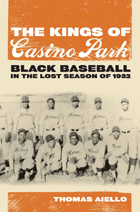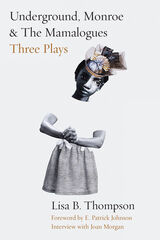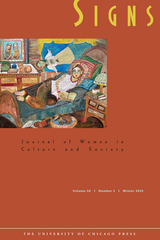3 books about Monroe

A Big History of North America
From Montezuma to Monroe
Kevin Jon Fernlund
University of Missouri Press, 2023
The special relationship between the United Kingdom, an established and secure power, and the United States, a rising one, began after the War of 1812, as the former enemies sought accommodation with, rather than the annihilation of, one another. At the same time, Mexico, also a rising power, was not so fortunate. Its relationship with Spain, an established but declining power, turned hostile with Spain’s final exit from North America after Mexico’s War of Independence, leaving its former colony isolated, internally unstable, and vulnerable to external attack. Significantly, Mexico posed little threat to its northern neighbor. By the third decade of the eighteenth century, then, the fate of North America was largely discernable.
Nevertheless, the three-century journey to get to this point had been anything but predictable. The United States’ rise as a regional power was very much conditioned by constantly shifting transcontinental, transpacific, and above all transatlantic factors, all of which influenced North America’s three interactive cultural spheres: the Indigenous, the Hispano, and the Anglo. And while the United States profoundly shaped the history of Canada and Mexico, so, too, did these two transcontinental countries likewise shape the course of U.S. history.
In this ground-breaking work, Kevin Fernlund shows us that any society’s social development is directly related to its own social power and, just as crucially, to the protective extension or destructive intrusion of the social power of other societies.
Nevertheless, the three-century journey to get to this point had been anything but predictable. The United States’ rise as a regional power was very much conditioned by constantly shifting transcontinental, transpacific, and above all transatlantic factors, all of which influenced North America’s three interactive cultural spheres: the Indigenous, the Hispano, and the Anglo. And while the United States profoundly shaped the history of Canada and Mexico, so, too, did these two transcontinental countries likewise shape the course of U.S. history.
In this ground-breaking work, Kevin Fernlund shows us that any society’s social development is directly related to its own social power and, just as crucially, to the protective extension or destructive intrusion of the social power of other societies.
[more]

The Kings of Casino Park
Black Baseball in the Lost Season of 1932
Thomas Aiello
University of Alabama Press, 2011
In the 1930s, Monroe, Louisiana, was a town of twenty-six thousand in the northeastern corner of the state, an area described by the New Orleans Item as the “lynch law center of Louisiana.” race relations were bad, and the Depression was pitiless for most, especially for the working class—a great many of whom had no work at all or seasonal work at best. Yet for a few years in the early 1930s, this unlikely spot was home to the Monarchs, a national-caliber Negro League baseball team. Crowds of black and white fans eagerly filled their segregated grandstand seats to see the players who would become the only World Series team Louisiana would ever generate, and the first from the American South.
By 1932, the team had as good a claim to the national baseball championship of black America as any other. Partisans claim, with merit, that league officials awarded the National Championship to the Chicago American Giants in flagrant violation of the league’s own rules: times were hard and more people would pay to see a Chicago team than an outfit from the Louisiana back country. Black newspapers in the South rallied to support Monroe’s cause, railing against the league and the bias of black newspapers in the North, but the decision, unfair though it may have been, was also the only financially feasible option for the league’s besieged leadership, who were struggling to maintain a black baseball league in the midst of the Great Depression.
Aiello addresses long-held misunderstandings and misinterpretations of the Monarchs’ 1932 season. He tells the almost-unknown story of the team—its time, its fortunes, its hometown—and positions black baseball in the context of American racial discrimination. He illuminates the culture-changing power of a baseball team and the importance of sport in cultural and social history.
[more]

Underground, Monroe, and The Mamalogues
Three Plays
Lisa B. Thompson; Foreword by E. Patrick Johnson; Interview with Joan Morgan
Northwestern University Press, 2020
This book features new plays by Lisa B. Thompson, author of Single Black Female. In these three plays, the black feminist playwright and scholar thoughtfully explores themes such as the black family, motherhood, migration, racial violence, and trauma and its effect on black people from the early twentieth century to the present. The works showcase Thompson’s subversive humor and engagement with black history and culture through the lens of the black middle class.
The thriller Underground explores the challenges of radical black politics among the black middle class in the post-Obama era. Monroe, a period drama about the Great Migration, depicts the impact of a lynching on a family and community in 1940s Louisiana. The Mamalogues, a satirical comedy, focuses on three middle-class black single mothers as they lean in, stress out, and guide precocious black children from diapers to college in a dangerous world. This collection will be compelling to readers interested in African American studies; drama, theater, and performance; feminist and gender studies; popular culture and media studies; and American studies.
The thriller Underground explores the challenges of radical black politics among the black middle class in the post-Obama era. Monroe, a period drama about the Great Migration, depicts the impact of a lynching on a family and community in 1940s Louisiana. The Mamalogues, a satirical comedy, focuses on three middle-class black single mothers as they lean in, stress out, and guide precocious black children from diapers to college in a dangerous world. This collection will be compelling to readers interested in African American studies; drama, theater, and performance; feminist and gender studies; popular culture and media studies; and American studies.
[more]
READERS
Browse our collection.
PUBLISHERS
See BiblioVault's publisher services.
STUDENT SERVICES
Files for college accessibility offices.
UChicago Accessibility Resources
home | accessibility | search | about | contact us
BiblioVault ® 2001 - 2025
The University of Chicago Press









